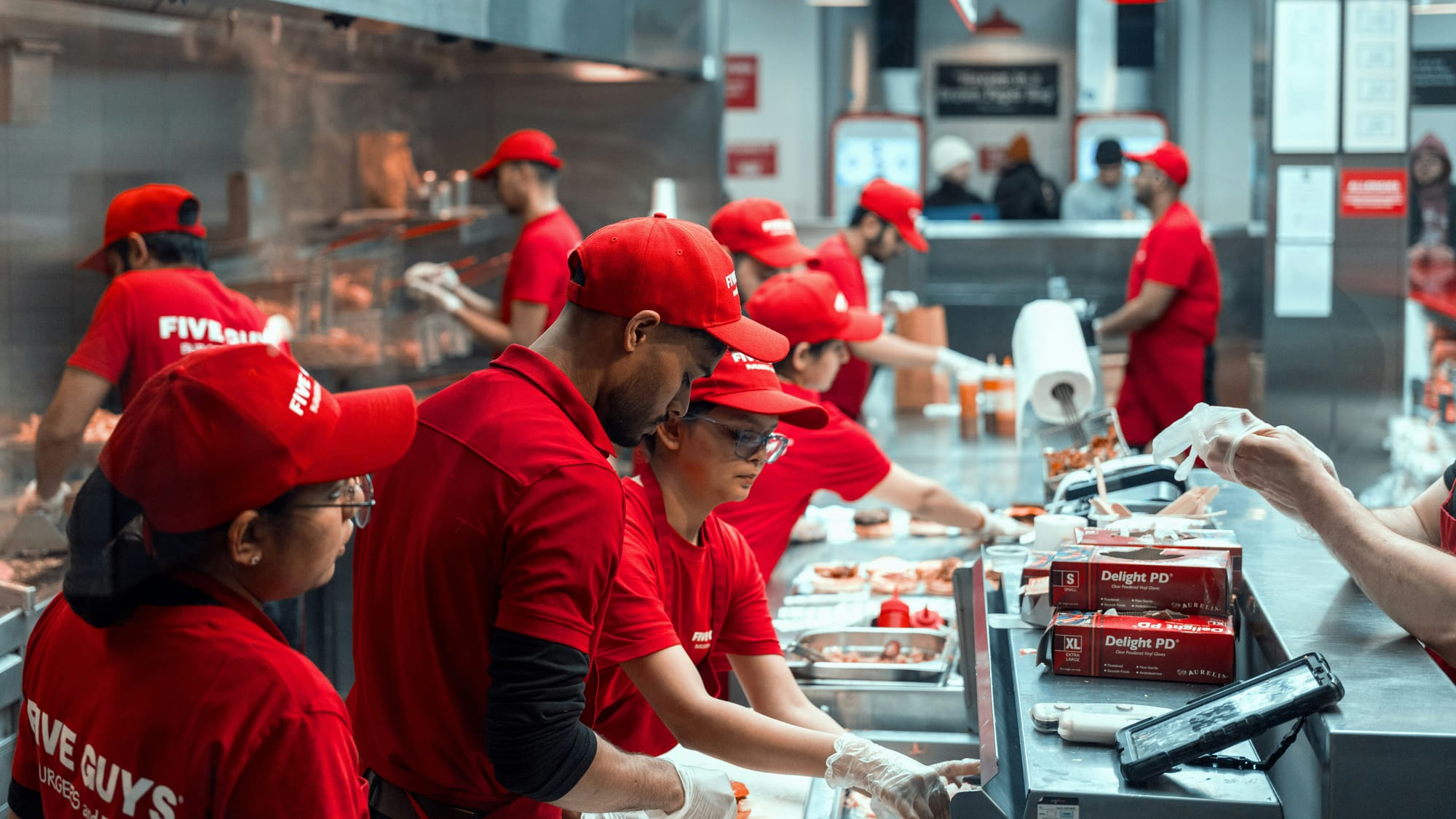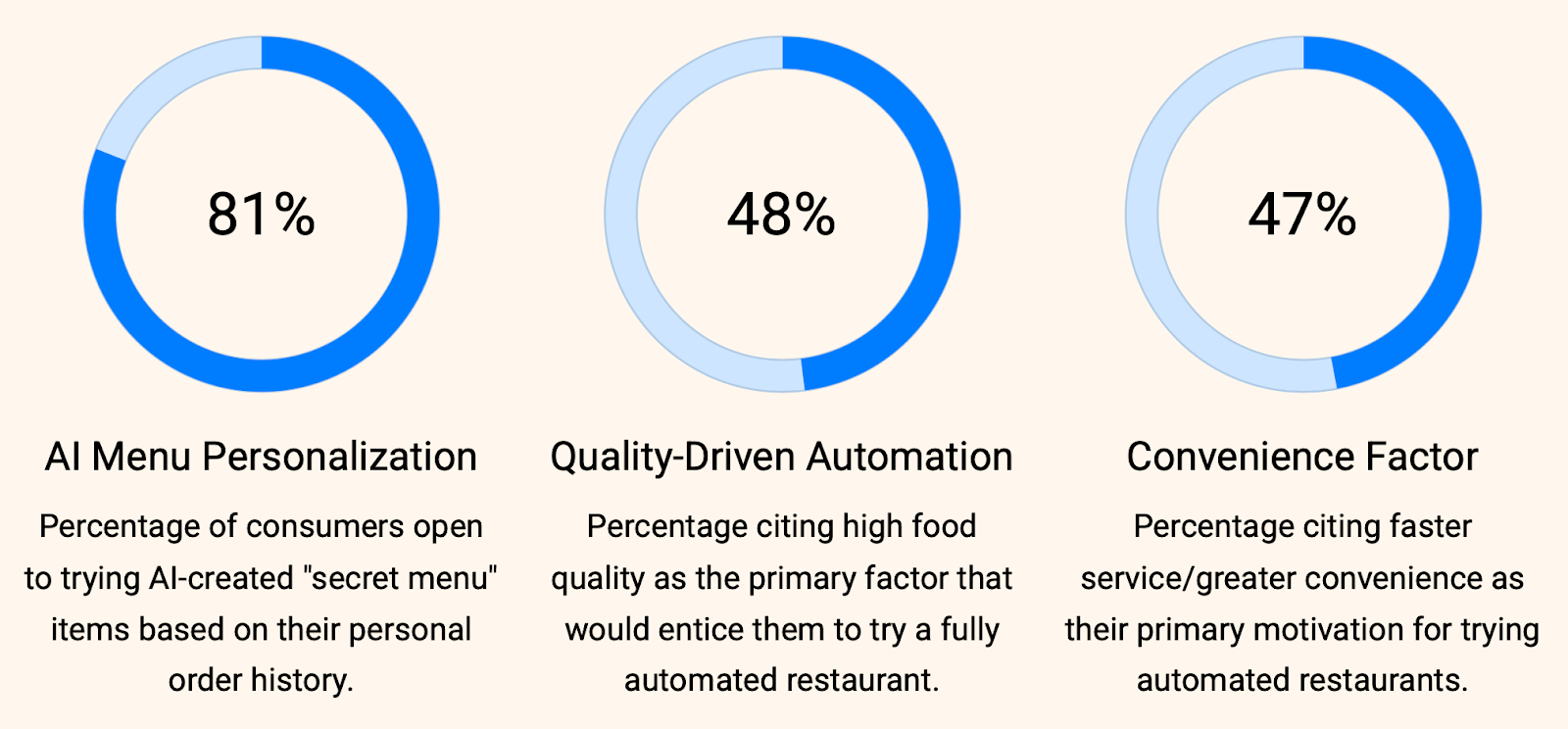Consumers Show Openness to AI in QSRs, But Human Interaction Still Matters
61% of consumers are “somewhat” or “very” comfortable ordering through an AI voice assistant, per an MX8 Labs study.

As AI and automation increasingly make their way into the quick-service restaurant industry, consumer attitudes reveal a mix of enthusiasm and caution. According to a report from MX8 Labs, acceptance of AI-driven ordering, kitchens and personalization varies widely across demographics, income and education levels. The findings suggest that while technology presents clear opportunities to enhance convenience and personalization, human interaction remains a critical part of the dining experience.
- 61% of consumers are “somewhat” or “very” comfortable ordering through an AI voice assistant, with that rising to 87% among high-income earners ($150K+), 82% for those with Master’s degrees and 75% with Hispanic consumers.
- Two-thirds of consumers prefer human interaction, especially seniors (85%).
- Acceptance of robotic kitchens is stronger among Black consumers (63%), high-income earners (61%) and those aged 35–44 (61%).
- 81% are open to trying AI-created “secret menu” items based on order history.
- Motivations to try automated restaurants include food quality (48%) and convenience (47%) — but consumer concerns remain, led by job displacement (21%), technical glitches (17%) and loss of human connection (15%).
For more QSR consumer insights, including a look at regional variations in brand awareness, what drives foot traffic and more, download the full report from MX8 Labs here.


